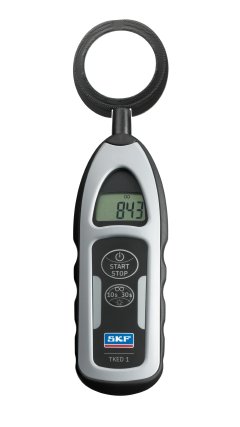Feb 10 2009
SKF, the leading knowledge engineering company, has launched an Electrical Discharge Detector Pen enabling electrical discharge in bearings to be detected quickly and remotely. The TKED 1 instrument can be used as part of a predictive maintenance programme to minimise the effects of electric currents on bearings used in electric motors.

Electrical discharges are a result of motor shaft voltages discharging to earth through the bearing, causing electrical erosion, lubricant degradation and ultimately bearing failure. The increasing use of variable frequency drives has made the problem more common and severe.
The Electrical Discharge Detector Pen is designed to detect electrical discharges in a non-contact manner, enabling quick diagnosis of electrical discharge. The number of electrical discharges counted is displayed on a LCD screen, and can be counted over a time period of 10 seconds, 30 seconds, or indefinitely, adapting to the specific needs of an application.
The TKED 1 is an easy to use handheld instrument, consisting of display unit and antenna. The pen is operated by three standard AAA batteries and can be carried around in a pocket for use wherever it is required. An LED backlit screen allows use in poor visibility environments, while alternatively users can turn off the backlight display and select the auto power off function if additional battery life is required. The pen is supplied in a sturdy carrying case with batteries, a spare antenna and instructions for use.